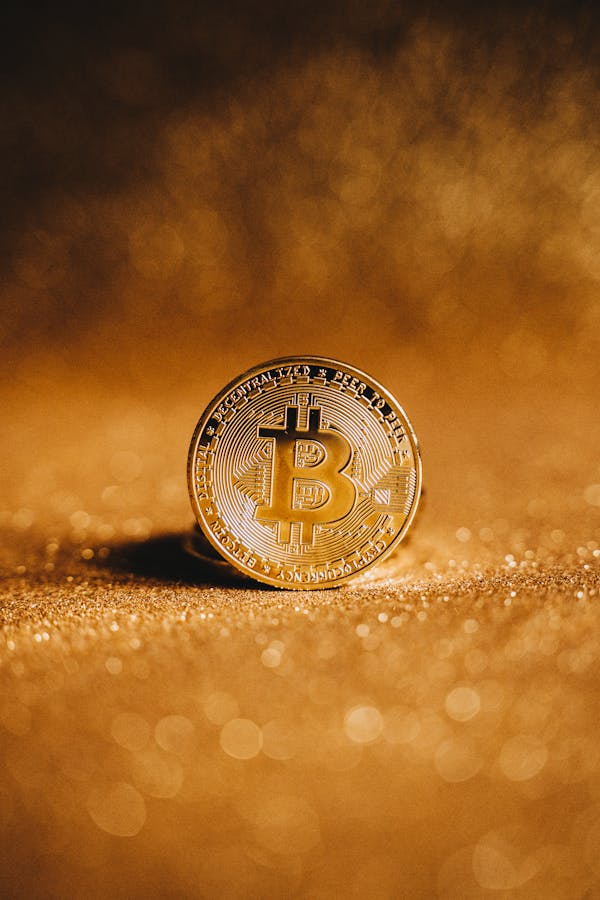The Role of Bitcoin in a Diversified Investment Portfolio
Bitcoin is a form of digital currency that is independent of central banks. It is based on cryptography and peer-to-peer software. Its value can rise and fall rapidly, depending on how people buy and sell it.
One reason bitcoin has value is that it’s scarce. Bitcoin transactions are public and anonymous, and the blockchain is the definitive account book for the cryptocurrency. Read More.
It’s a form of digital currency
The value of bitcoin is determined by the number of people willing to exchange it for goods, services or existing currencies. Its supply is limited to 21 million, and its smallest unit is called a satoshi.

Bitcoin was designed as a decentralized alternative to traditional banking systems. Its creators wanted to put the seller in control, eliminate middlemen and cancel interest fees. The result is fast and borderless transactions that can be processed instantly.
The blockchain technology underpinning bitcoin makes it secure. It is public and decentralized, and it uses cryptographic techniques to verify each transaction. It also features smart contracts, which allow developers to create applications on the network. These characteristics make Bitcoin a safe and convenient alternative to traditional banks. However, it’s not without its drawbacks. Its price volatility is one of them. It has also been linked to terrorism financing and money laundering, as well as environmental concerns like the energy consumption involved in mining it.
It’s a store of value
The value of bitcoin is determined by the price people are willing to pay for it. Its price reflects the social consensus on its worth, which can change over time. Bitcoin has a maximum supply of 21 million coins and is divisible up to eight decimal points. The smallest unit is called a “satoshi.”
Unlike traditional currencies, it’s not backed by central banks or governments. This decentralization makes it popular with people who think it will bring financial freedom. But it also makes it volatile, as prices rise and fall at the whim of investors.
Many people use Bitcoin as a store of value, and it has a growing number of retailers and services that accept it. Some people even use it as a method of payment. Those who buy Bitcoins can keep them at a cryptocurrency exchange or in digital wallets. Some users prefer to keep their private keys safe in a cold storage environment to protect them from hackers and other threats.
It’s a medium of exchange
Bitcoin was created by a person or group of people that remains unidentified to this day as a way to conduct transactions without the intervention of a bank or other financial institution. Its emergence came amid the global financial crisis, which shook trust in banks and governments. It also enabled transactions using only digital identities, granting some degree of anonymity. This helped it become the preferred currency of black market transactions, including ransomware attacks and illegal online commerce.
The Bitcoin network is decentralized, which makes it resistant to manipulation by regular banks and governing authorities. It also uses cryptography to verify and record transactions. However, the transaction fees can be high and the system consumes vast amounts of energy. This has made some people concerned about its security. Still, it is popular among investors who believe that decentralisation will lead to financial freedom. Its value has also risen rapidly since it was launched. This makes it a great store of value.
It’s a store of power
Bitcoin is a digital currency that allows people to conduct transactions without the intervention of a third party, such as a bank. The system also provides a level of anonymity. Transactions are recorded on a ledger called the blockchain, which is distributed worldwide and backed up by multiple computers. Transactions are also irreversible once confirmed. This makes it difficult for scammers to reverse their actions or steal funds from victims.
The Bitcoin network consumes a significant amount of energy, which is used by “miners” who provide their computing power in exchange for the cryptocurrency’s value. This energy is not wasteful, however, because it helps secure the blockchain and data about Bitcoin transactions. Moreover, the electricity that miners use is usually from renewable sources such as hydroelectricity.
While many investors are skeptical of cryptocurrencies, they are becoming more popular. Companies are beginning to adopt them as payment methods and even as an investment. This is because they offer a more stable alternative to the dollar.
